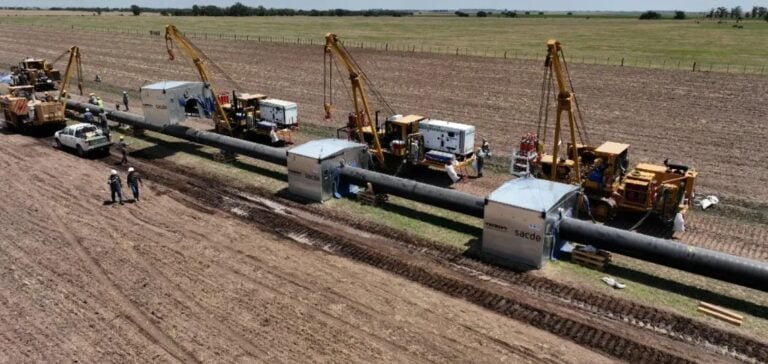The Vaca Muerta basin, located in Argentina’s Neuquén province, is recognized as one of the most promising sites for shale gas and oil production. With estimated reserves of 308 Tcf (trillion cubic feet) of gas and 16.2 billion barrels of oil, the site offers a unique opportunity to position Argentina as a key global energy player. However, this ambition is hindered by infrastructure constraints, regulatory instability, and challenges related to global competitiveness.
A Strategic Lever for Regional Diplomacy
In a global context where energy plays a central role in international relations, Vaca Muerta could become a vital tool for Argentina’s energy diplomacy. Its geographical proximity to countries like Brazil and Chile creates opportunities for regional exports through existing pipelines. These neighboring markets, seeking diversification in their energy supplies, represent strategic opportunities, albeit with limited volume capacity.
However, these regional ambitions clash with infrastructure constraints. Current pipelines, including the recently inaugurated President Néstor Kirchner gas pipeline, fall short of transporting the necessary volumes for significant exports. The investments required to expand these capacities amount to billions of dollars, a major hurdle for Argentina’s struggling economy.
Structural Challenges to Global Exports
While international markets, particularly in Asia and Europe, present growth opportunities for liquefied natural gas (LNG), the lack of liquefaction infrastructure remains a significant barrier. The development of LNG terminals, estimated at $5 billion per facility, remains in the planning stage, despite interest from foreign investors and YPF, the national oil company.
Beyond infrastructure, production costs at Vaca Muerta, though decreasing, remain higher than those of leading global exporters like Qatar and the United States. With an estimated global export cost of $10/MMBtu (including liquefaction and transport), Argentina struggles to compete with industry leaders.
Regulation and Politics: Barriers to Competitiveness
Argentina’s regulatory instability complicates long-term foreign investments. Restrictions on capital repatriation, currency controls, and fluctuating fiscal policies hinder investor confidence. Added to this are domestic subsidies, such as those provided under Plan Gas, which misalign local prices with international standards.
Moreover, administrative delays in approving infrastructure projects, combined with local opposition and environmental concerns, significantly extend implementation timelines. These political and bureaucratic challenges reduce Argentina’s ability to quickly position itself on global markets.
Energy Diplomacy as a Path to Recovery
To overcome these obstacles, Argentina could leverage proactive energy diplomacy, focusing on strategic partnerships. Collaboration with global players, such as major oil companies or international financial institutions, could accelerate the development of critical infrastructure.
Regionally, strengthening ties with Brazil and Chile could help Argentina solidify its role as a reliable supplier, while generating much-needed revenues to finance broader ambitions.
On a global scale, Argentina must position itself as a long-term player in an evolving LNG market, particularly in the context of energy transition and decarbonization efforts.
Prospects for Argentina’s Energy Future
Despite the challenges, Vaca Muerta remains a strategic lever for Argentina, both economically and geopolitically. Deep reforms aimed at stabilizing the regulatory framework and attracting private capital will be essential to transform this potential into reality.
In this context, energy diplomacy could play a crucial role, using Vaca Muerta’s resources not only to meet internal demand but also to negotiate favorable commercial partnerships and strengthen Argentina’s regional and global influence.






















